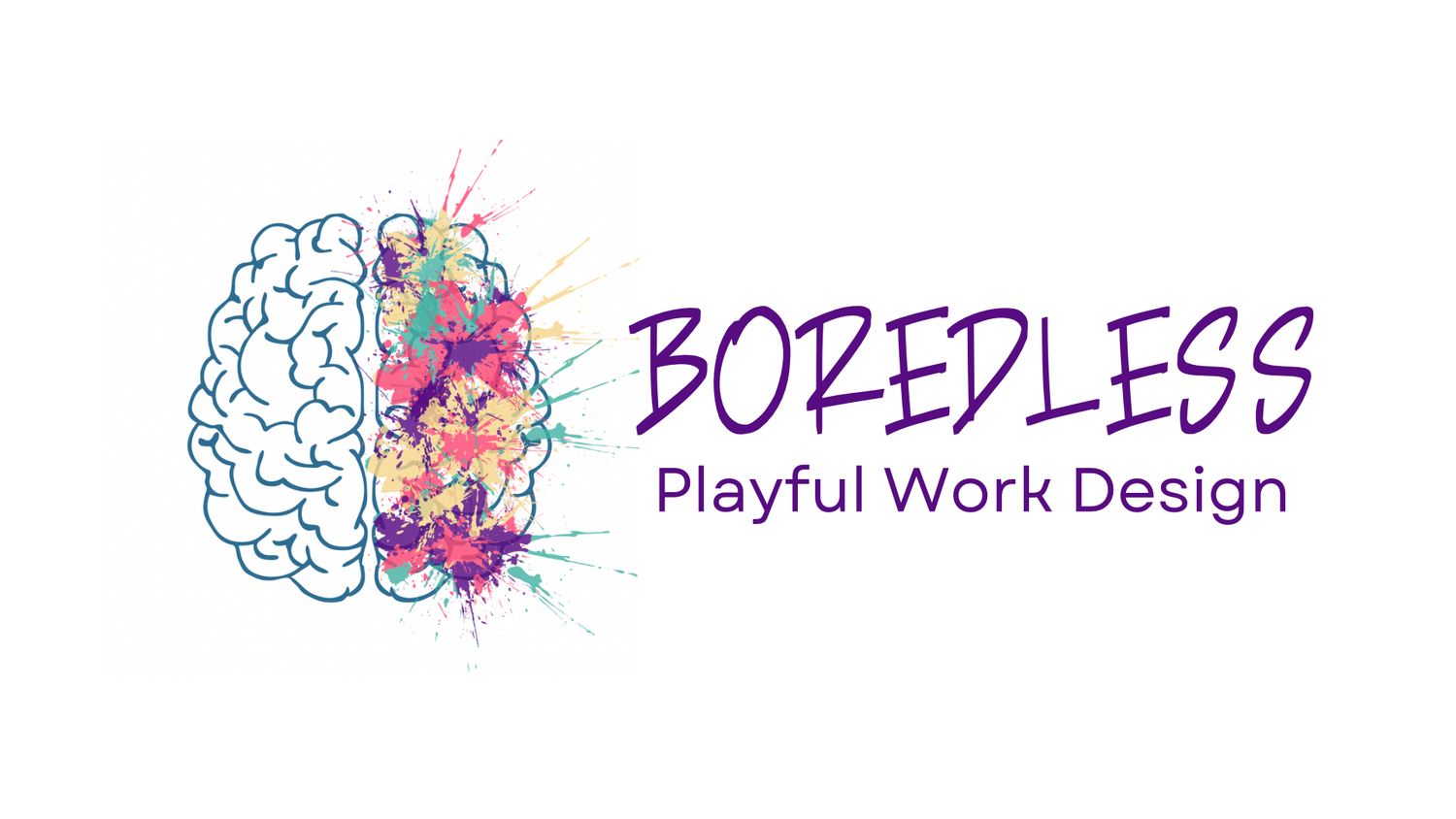Playful Work Design
Team building, gamification, and “fun” at work are hot topics these days. However, for organizations aiming to achieve a comprehensive transformation that extends to teams and the entire company structure, embracing Playful Work Design—anchored by its four foundational pillars: flexibility/autonomy, psychological safety, mission alignment, and inclusivity—is the ultimate strategy!
What Playful Work Design is NOT
One-off and scripted team-building activities are not enough to create systemic change within organizations to truly overhaul culture and improve employee engagement and well-being. Although gamification and competition can be engaging, they often lack core elements of playful work design such as psychological safety and inclusion. Gamification may foster a sense of exclusion or fear of failure, counteracting the benefits of a playful work environment. Research also indicates that rewards must be consistently increased to retain their motivational component, even for competitive high-performers.
What Playful Work Design IS
Beginning with company-wide education about the neuroscience of play, individuals and teams gain an understanding of the benefits that can be woven into daily routines, scheduling, meetings, and project management. Playfulness (as defined by Rene Proyer) is an ability to (re)frame any situation to be interesting, stimulating, or entertaining. When taking this perspective, any work-related activity can now be fulfilling and satisfying, leading to increased engagement. Flexibility and autonomy play a crucial role in allowing individuals to infuse that playfulness into their work on their terms, making tasks more engaging and fulfilling. Mission-driven work aligns employees' tasks with the broader organizational goals, making even routine tasks feel more meaningful and enjoyable.
The Neuroscience
When we adopt playful attitudes and behaviors across any activity, our brains release a potent mix of neurochemicals such as dopamine, serotonin, endorphins, brain-derived neurotrophic factors, endogenous opioids, and (if the activity is socially interactive), oxytocin. These neurochemicals are directly responsible for
regulating levels of and reactions to stress
boosting creativity
providing joy
increasing readiness to learn
creating empathy and ease of vulnerability
improving communication and relationships
When employees feel safe to take creative risks without fear of repercussions, their brains are more likely to release those beneficial neurochemicals. This not only boosts creativity but also strengthens relationships and communication within teams.
The Results
Organizations that provide playful work design for their employees and teams can expect the following benefits:
improved productivity (at least 12%, some state up to 500%!)
increased profits (21%)
reduced absenteeism (41%)
less employee turnover (59%)
Inclusion brings different viewpoints to the table, making problem-solving more creative and boosting productivity and profits. Adding psychological safety to the mix, where employees feel safe to express ideas and take risks, further amplifies creativity and engagement. When employees also feel in control of their work (flexibility and autonomy) and understand how their tasks align with the company's goals (mission-driven work), their commitment deepens. This combination significantly lowers the likelihood of them missing work or leaving the job, thereby reducing absenteeism and turnover.
The Proof
If neuroscientific research isn't convincing enough, consider the success stories of Ed Catmull's Pixar in "Creativity, Inc." and Richard Sheridan's software development company in "Joy, Inc." and "Chief Joy Officer. These companies exemplify the four pillars in fascinating ways.
What’s Next
If you're ready to enhance employee engagement, retention, and overall well-being by incorporating playful work design into your organization, consider book a discovery call with me today to learn more about my interactive, engaging, and educational workshops or culture audit and consulting.







